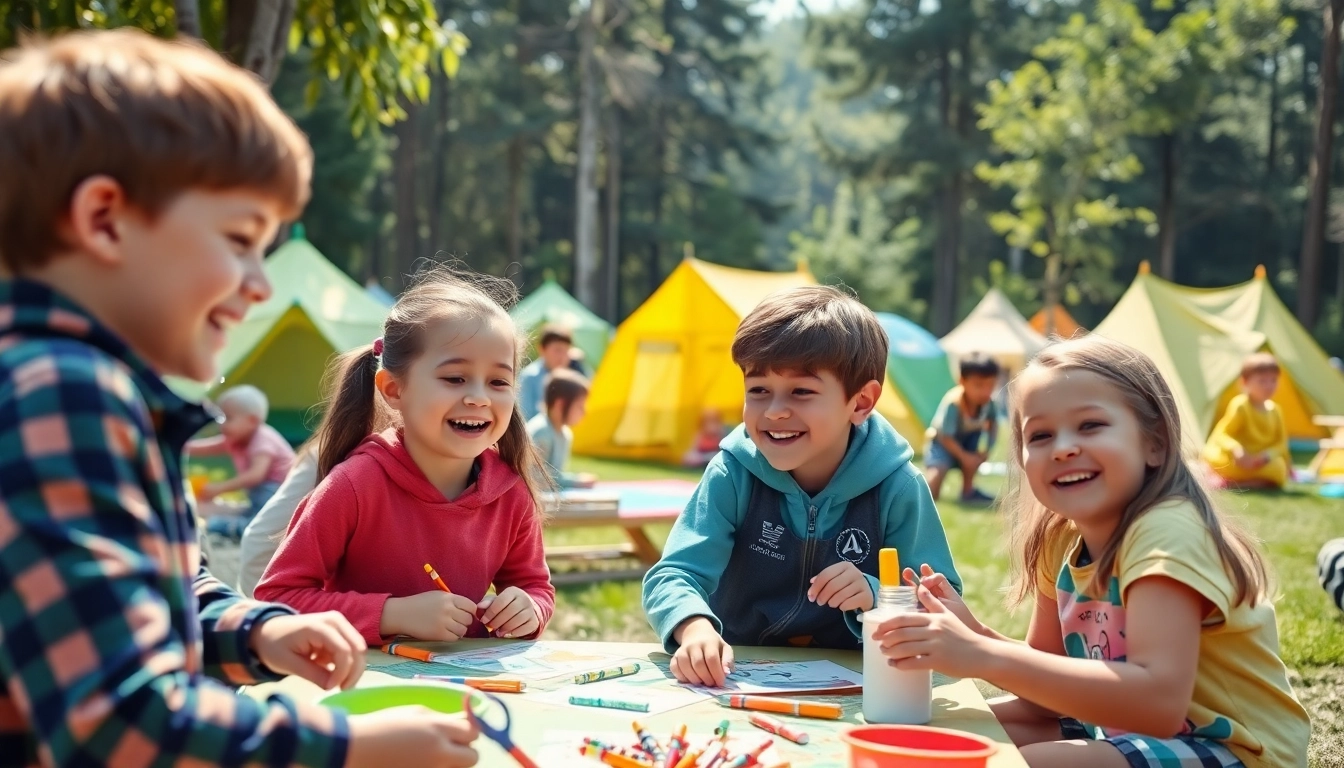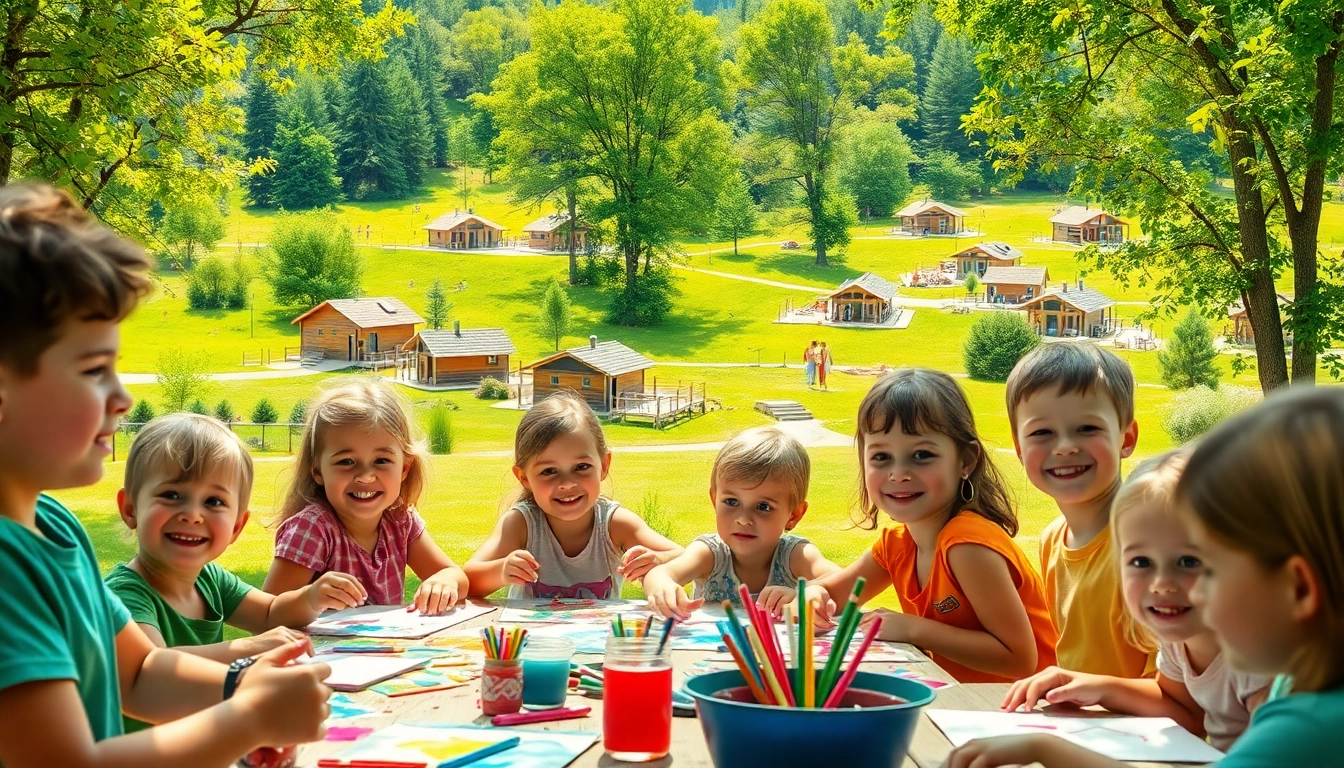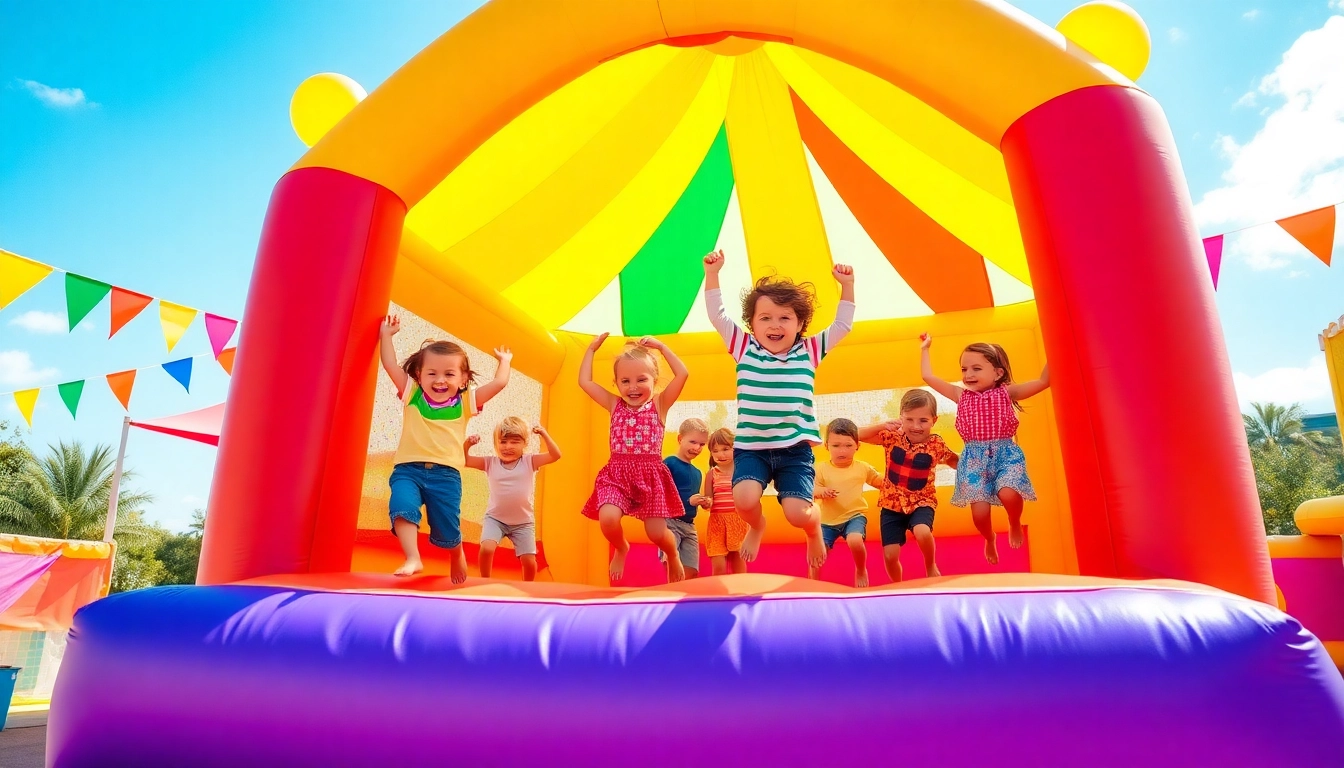Understanding Holiday Camps
What Are Holiday Camps?
Holiday camps are organized recreational programs that provide a space for individuals, primarily children, to engage in various activities during school holidays. Ranging from day camps to residential experiences, holiday camps offer a structured environment that fosters growth, learning, and social interaction. Traditionally seen in the United Kingdom and across other parts of the world, holiday camps vary in focus, from adventure and nature activities to arts and education. Often, these camps are strategically scheduled during school vacations, making them an excellent choice for parents looking to engage their children during breaks.
At holiday camps, children can immerse themselves in a myriad of experiences designed to cater to their interests while also promoting community spirit and teamwork. These camps can provide valuable life skills that extend beyond the classroom, making them a popular choice among families.
Types of Holiday Camps Available
Holiday camps come in various types to cater to diverse needs and preferences. Below are some of the most common types:
- Day Camps: These camps typically run during daylight hours, allowing children to attend a range of activities without overnight stays. They are ideal for parents looking for structured activities during school breaks.
- Residential Camps: Residential or sleepover camps provide children with an immersive experience, typically involving a week or more away from home. These camps encourage independence and social skills through teamwork and shared living experiences.
- Specialized Camps: Some camps focus on specific interests, such as sports (e.g., soccer or basketball camps), arts (e.g., drama or music camps), or academic subjects (e.g., STEM camps). These specialized camps allow children to hone particular skills while fostering a love for the specific subject.
- Adventure Camps: Focused on activities like hiking, climbing, and outdoor survival skills, adventure camps promote physical fitness and a connection to nature, providing thrilling experiences under trained supervision.
- Multi-Activity Camps: These camps offer a wide range of activities from sports to crafts, allowing participants to experience various hobbies. They’re ideal for children who enjoy variety and exploration.
Key Features of Holiday Camps
The appeal of holiday camps lies in their unique blend of structured programming and enjoyable activities. Essential features of holiday camps include:
- Qualified Staff: Most holiday camps employ trained professionals who ensure the safety and wellbeing of participants while conducting engaging activities.
- Structured Programming: Camps offer a balanced schedule of activities designed to develop various skills, keeping participants engaged and active throughout the day.
- Social Interaction: Camps provide a community atmosphere that encourages friendship and collaboration, helping to foster vital social skills in children.
- Variety of Activities: Camps typically offer a diverse range of activities, catering to different interests and abilities, which allows children to explore new passions.
- Safety Measures: A strong emphasis on safety protocols and child protection practices is crucial in providing peace of mind to parents.
Benefits of Attending Holiday Camps
Social Development Opportunities
One of the most significant benefits of attending holiday camps is the opportunity for social development. Children engage with peers outside of their traditional school environments, which reinforces interpersonal skills such as teamwork, communication, and conflict resolution. These experiences can lead to lifelong friendships and a sense of belonging, which are crucial for emotional well-being.
Additionally, camps typically promote collaboration through group activities and team challenges, enabling participants to learn the value of working together towards common goals and building trust among peers.
Skill-Building Activities
Holiday camps are rich in opportunities for children to gain new skills. Whether learning to cook, mastering a new sport, or trying their hand at arts and crafts, camps facilitate hands-on learning that contributes to personal growth. Skill-building often extends beyond practical abilities; children also develop soft skills like leadership and adaptability as they navigate new challenges and responsibilities.
The emphasis on experiential learning ensures that children are not just passive recipients of information but are actively engaged in the process of learning, paving the way for lifelong learning habits.
Physical Health Benefits
Given the active nature of holiday camps, participants enjoy numerous physical health benefits. Regular physical activity reduces the risk of obesity, improves cardiovascular health, and boosts overall fitness. Outdoor camps that promote activities such as hiking, swimming, or team sports encourage children to be active in nature, thus promoting a healthy lifestyle that can be sustained long after the camp experience ends.
Furthermore, engaging in physical activity has been linked to improved mental health, reducing symptoms of anxiety and depression while boosting self-esteem and confidence among participants.
Popular Activities at Holiday Camps
Outdoor Adventures and Team Sports
Outdoor adventure activities are at the forefront of many holiday camp programs. Campers often participate in organized sports, hiking, zip-lining, and canoeing, which foster a love for physical activity and the great outdoors. These activities enhance teamwork and leadership while building resilience in participants, allowing them to push their limits and discover their capabilities.
Team sports, in particular, instill cooperative skills and sportsmanship, teaching children how to work collectively towards shared objectives while encouraging a friendly competitive spirit.
Creative Arts and Crafts
Many holiday camps offer sessions that focus on creative arts and crafts, allowing children to express their creativity. Activities may include painting, pottery, and even performance arts, which provide a means for self-expression and confidence building in a non-judgmental environment.
Art-related programs stimulate cognitive development and enhance fine motor skills, while also introducing children to new mediums and techniques they might not encounter elsewhere.
Educational Workshops and Learning Experiences
Alongside traditional recreational activities, holiday camps often incorporate educational elements, such as workshops in science, technology, engineering, and mathematics (STEM). These learning experiences can spark curiosity, inspire future studies, and keep the minds of young campers engaged during school breaks. Educational workshops cater to varying age groups and learning levels, ensuring inclusivity while challenging young learners to pursue academic excellence in a fun, engaging setting.
Choosing the Right Holiday Camp
Factors to Consider When Selecting Camps
Selecting the right holiday camp can have a profound effect on a child’s experience. Factors to consider include:
- Interests and Objectives: Reflect on what your child enjoys. Whether it’s sports, arts, or academics, aligning their interests with camp offerings is crucial.
- Duration and Schedule: Consider the camp’s duration and how it fits within your family calendar. Flexibility in scheduling can also be essential for busy families.
- Location: Proximity to your home can influence your choice, as ease of commute may relieve some of the logistical stress.
- Cost: Evaluate your budget and consider any hidden costs, ensuring that you choose a camp that provides value for the investment.
- Accreditation and Reputation: Research the camp’s reputation and whether it meets safety and health regulations; reviews and recommendations from other parents can provide valuable insights.
Reading Reviews and Recommendations
Reviews and recommendations are essential in gauging the quality of a holiday camp. Parents should seek feedback from previous attendees to gain insight into the camp’s structure, staff, and overall experiences. Websites dedicated to camp reviews can be particularly useful in finding honest assessments.
Additionally, discussing with friends or community members who have attended similar camps can help inform your decision, leading to a camp selection that best fits your child’s needs.
Understanding Camp Safety Regulations
Your child’s safety is paramount, so understanding the camp’s safety regulations is crucial. Inquire about the camp’s qualifications concerning staff background checks, first aid training, and emergency protocols. Reputable camps should readily provide information regarding their safety practices and child protection policies, ensuring they adhere to state and local regulations.
Additionally, understand the camper to staff ratio as this can affect the level of supervision and care that your child will receive during their participation.
Making the Most of Your Holiday Camp Experience
Preparation Tips for Campers
Preparation is key to ensuring a successful camp experience. Here are some tips for campers:
- Pack Wisely: Ensure that all required items are packed, including clothing suitable for various activities, sunscreen, and personal comforts like a favorite book or toy.
- Foster an Open Mind: Encourage children to approach the camp with a positive attitude and a willingness to try new activities and make new friends.
- Communicate with Staff: Make sure children feel comfortable approaching camp staff if they have questions or concerns during their time at camp.
Strategies for Parent Involvement
Parents can enhance their child’s holiday camp experience through active involvement. Strategies include:
- Pre-Camp Communication: Parents should engage in discussions with their children about what to expect and ensure that the child feels confident and excited.
- Post-Camp Engagement: After camp, parents can discuss the experiences, helping children reflect on what they learned and enjoyed during their time.
- Stay Connected: Many camps provide channels for parents to communicate with staff about their child’s needs or any special circumstances that may arise.
Post-Camp Reflection and Learning
After the camp session, take the time to facilitate discussions about the experiences. Questions such as “What was your favorite activity?” or “What did you learn about teamwork?” can lead to meaningful conversations that reinforce the skills developed during camp. Additionally, reflecting on these experiences helps solidify the knowledge and confidence gained, preparing children for future challenges.
By encouraging a mindset of reflection and learning, parents can help children understand and appreciate the value of their holiday camp experience, creating lasting memories and a foundation for personal growth.


